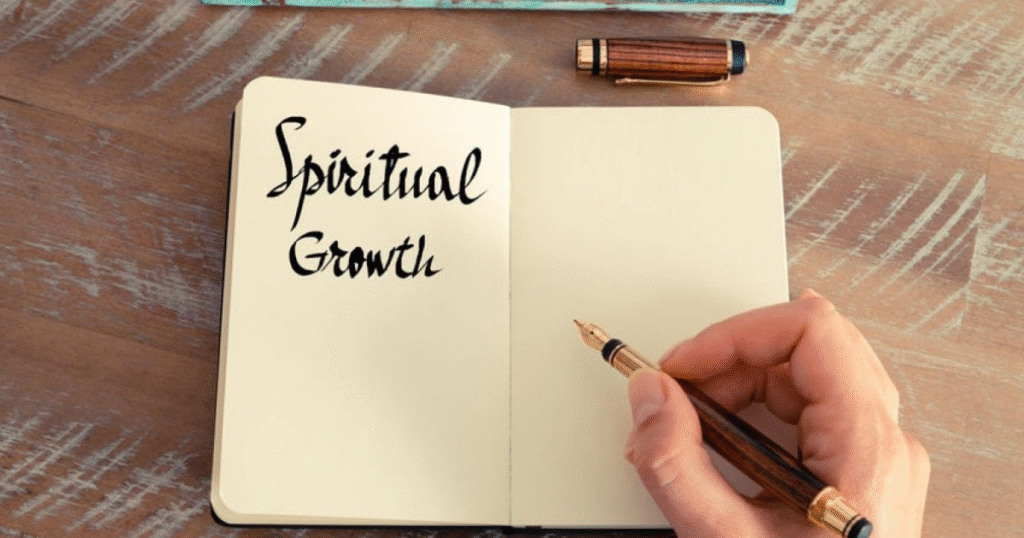Journaling is far more than putting pen to paper. It’s a powerful tool for introspection, emotional healing, and personal growth. From historical figures like Leonardo da Vinci and Anne Frank to modern-day entrepreneurs and creatives, journaling has long been a trusted method for self-expression and discovery. In this comprehensive guide, we’ll explore how journaling can lead you down a path of self-discovery and provide strategies to help you build and sustain a meaningful journaling practice.
Step 1: Understanding the Purpose of Journaling
What Is Journaling?
Journaling is the act of regularly recording thoughts, emotions, ideas, and experiences. It can be structured or free-form and is often used as a therapeutic or reflective tool.
Why Journal for Self-Discovery?
Journaling helps uncover thoughts and feelings that often lie beneath the surface. By writing regularly, individuals gain clarity, identify patterns, and deepen their understanding of themselves.
Step 2: The Psychological Benefits of Journaling
Enhances Emotional Well-being
Journaling has been shown to reduce stress, anxiety, and depression by helping individuals process emotions.
Boosts Cognitive Function
The act of writing engages the brain and enhances critical thinking, memory, and creativity.
Fosters Personal Growth
Through reflection, journaling enables individuals to set goals, track progress, and cultivate a growth mindset.
Step 3: Types of Journaling for Self-Discovery
Reflective Journaling
Reflect on your day, decisions, and feelings. Ask yourself what you learned and how you felt about different experiences.
Gratitude Journaling

Focus on writing down things you’re grateful for. This type of journaling helps shift your mindset toward positivity and appreciation.
Stream-of-Consciousness Writing
Write without censoring yourself. Let thoughts flow freely to uncover subconscious ideas and emotions.
Prompt-Based Journaling
Use questions or themes to guide your writing. Prompts help explore specific aspects of your personality, goals, or emotions.
Dream Journaling
Record and interpret your dreams. Over time, you might discover recurring symbols or messages from your subconscious.
Step 4: How to Start a Journaling Practice
Choose Your Medium
Decide whether you prefer a physical notebook, digital app, or audio journal. Choose what feels most natural and accessible to you.
Set a Time and Place
Consistency is key. Establish a daily or weekly routine and designate a quiet, comfortable space for journaling.
Start Small
You don’t need to write pages every day. Even a few sentences can be impactful if written with intention.
Use Prompts to Begin
Try prompts like:
- “What am I feeling right now and why?”
- “What do I want to let go of?”
- “What does success look like to me?”
Step 5: Deepening Your Practice
Be Honest with Yourself
Write as though no one else will read it. Authenticity leads to deeper insights and more meaningful entries.
Revisit Old Entries
Looking back at past entries can reveal how much you’ve grown or how certain patterns repeat.
Incorporate Other Elements
Add sketches, poems, quotes, or mind maps to enrich your journaling experience.
Track Your Emotions
Use mood trackers or daily ratings to observe emotional trends and triggers.
Step 6: Overcoming Common Journaling Barriers
“I Don’t Have Time”
Journaling doesn’t have to be time-consuming. Even five minutes a day can make a difference.
“I Don’t Know What to Write”
Use prompts or simply describe your day. Over time, your flow will improve.
“I’m Afraid Someone Will Read It”
Keep your journal in a secure place or use password-protected digital tools.
“I’m Not a Good Writer”
Journaling isn’t about grammar or style. It’s about expression. Write freely and without judgment.
Step 7: The Transformational Power of Journaling
Increases Self-Awareness
Regular journaling builds a deeper understanding of who you are, what you value, and what drives your decisions.
Strengthens Emotional Intelligence
By exploring your emotions and reactions, you become more empathetic and aware in your interactions with others.
Clarifies Life Goals and Values
Journaling reveals your true desires and helps align your daily actions with your long-term vision.
Encourages Mindfulness
Writing brings your attention to the present moment, helping you live with greater awareness and intention.
Step 8: Journaling and Spirituality

Connecting with a Higher Self
Many people use journaling as a way to connect with their spiritual beliefs or inner guidance.
Creating Rituals
Incorporate rituals like lighting a candle or meditating before journaling to make it a sacred practice.
Writing Affirmations
Daily affirmations can rewire negative thought patterns and instill confidence and purpose.
Step 9: Journaling for Healing
Trauma and Emotional Processing
Journaling provides a safe outlet for expressing pain and grief. Writing about traumatic experiences can aid in emotional release and understanding.
Forgiveness and Closure
Write letters to those you’ve hurt or who have hurt you—even if you never send them. This can lead to emotional release and healing.
Self-Compassion and Acceptance
Use journaling to practice kindness toward yourself. Recognize your strengths and celebrate your progress.
Step 10: Sustaining the Practice
Create a Journaling Habit
Attach journaling to an existing habit, like morning coffee or bedtime reading, to make it stick.
Reflect on the Impact
Take note of how journaling has influenced your mental, emotional, and spiritual life.
Stay Open and Curious
Let journaling be a journey of exploration. There’s always more to learn about yourself.
Also Read: Photography For Beginners: A Complete Starter Guide
Conclusion
Journaling is a profound and transformative tool that offers a pathway to self-discovery. It cultivates awareness, promotes healing, and empowers personal growth. The power of journaling lies in its simplicity and adaptability. Whether you write every day or once a week, in a notebook or on an app, the key is to be honest, consistent, and open. Embrace journaling not just as a habit, but as a sacred practice that can illuminate your inner world and guide you toward a more authentic life.
FAQs
1. How often should I journal for self-discovery?
Ideally, aim for at least 3-5 times a week. Consistency is more important than frequency; find a rhythm that works for you.
2. What should I do if I run out of things to write about?
Use prompts, reflect on recent events, revisit past entries, or write about your dreams and aspirations.
3. Can journaling replace therapy?
While journaling is therapeutic, it should not replace professional help when dealing with deep trauma or mental illness. It can complement therapy effectively.
4. Is it better to journal in the morning or evening?
Both times have benefits. Morning journaling can set intentions for the day, while evening journaling aids reflection. Choose based on your lifestyle and goals.
5. What’s the best type of journal to use?
There is no one-size-fits-all. Choose between a physical notebook, a digital platform, or a guided journal based on your preferences and comfort.

